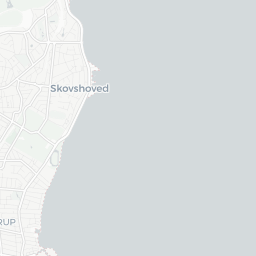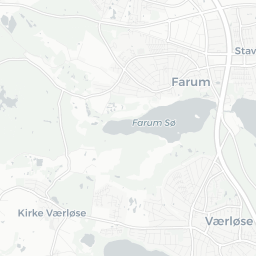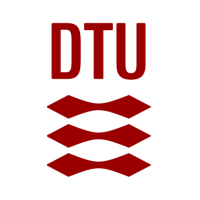Postdoc in Structural Properties in Associating and Electrolyte Systems - DTU Chemical Engineering
Danmarks Tekniske Universitet (DTU)
A Postdoc with experience in infrared spectroscopy, quantum chemical calculations, and molecular simulations is looked for to explore novel methods for quantifying structure information of complex fluids for developing the next-general molecular thermodynamic theories and models.
Are you a skillful and ambitious PhD graduate interested in kicking off your academic career in a renowned research group leading in the field of applied thermodynamics with a strong scientific and industrial network?
The Center for Energy Resources Engineering (CERE) within the Department of Chemical and Biochemical Engineering of the Technical University of Denmark (DTU) welcomes aspiring scientists with polished skills to expand the field of molecular thermodynamics for aqueous electrolyte systems.
This post-doctoral project is part of the ERC Consolidator Grant “Revolutionizing molecular thermodynamics by water and electrolytes (REMOTE)”, which aims to unravel the intricate relationships between fluid structures, molecular interactions, and macroscopic properties, deepen the fundamental understanding of molecular thermodynamics, and realize the importance of different types of properties in selecting the most physically sound thermodynamic model for water and electrolytes.
Responsibilities and qualifications
Modern thermodynamic models have achieved major improvements in the prediction of thermodynamic properties of associating substances. To address the complex challenges posed by associating substances focusing on water and electrolyte systems, novel experimental data are of great importance for calibrating model parameters and evaluating their performance. Vibrational spectroscopy is a powerful tool in probing the microscopic picture of hydrogen bonding substances, and the most efficient treatment of spectroscopic data is carried out with the application of fundamental principles regarding the physical chemistry of hydrogen bonds.
Your overall focus will be the collection of experimental spectroscopic data and its analysis with quantum calculation techniques and molecular simulation methods. Your primary tasks will be to:
- Collect experimental spectroscopic data on diverse hydrogen bonding systems
- Conduct calculations on hydrogen bonded clusters and estimate key quantities to aid the spectroscopic interpretation or to directly apply to macroscopic models
- Teach and supervise BSc and MSc student projects and co-supervise PhD projects
- Communicate your research results to academic and industrial partners
- Collaborate with external research groups
- Draft and submit manuscripts to peer-reviewed research journals
You should be highly qualified in:
- Theoretical and experimental aspects of vibrational spectroscopy (infrared, Raman) and lab experience on instruments and equipment relevant to these techniques.
- Advanced quantum calculation methods with emphasis on hydrogen bonding systems and solvation models.
- Molecular simulation techniques and molecular mechanics principles (especially applied on water and hydrogen bonding systems).
- Thermodynamic modeling and applied physical chemistry for industrial applications.
As a formal qualification, you must hold a PhD degree (or equivalent).
We offer
DTU is a leading technical university globally recognized for the excellence of its research, education, innovation and scientific advice. We offer a rewarding and challenging job in an international environment. We strive for academic excellence in an environment characterized by collegial respect and academic freedom tempered by responsibility.
Salary and terms of employment
The appointment will be based on the collective agreement with the Danish Confederation of Professional Associations. The allowance will be agreed upon with the relevant union.
The period of employment is 2 years. The starting date is 15 May 2025, or as soon as possible thereafter. The position is a full-time position.
You can read more about career paths at DTU here.
Further information
Further information may be obtained from Associate Professor Xiaodong Liang (xlia@kt.dtu.dk), Professor Georgios M. Kontogeorgis (gk@kt.dtu.dk), and Professor Nicolas von Solms (nvs@kt.dtu.dk).
You can read more about our Chemical Engineering department at www.kt.dtu.dk.
If you are applying from abroad, you may find useful information on working in Denmark and at DTU at DTU – Moving to Denmark.
Application procedure
Your complete online application must be submitted no later than 16 April 2025 (23:59 Danish time). Applications must be submitted as one PDF file containing all materials to be given consideration. To apply, please open the link "Apply now", fill out the online application form, and attach all your materials in English in one PDF file. The file must include:
- Application (cover letter)
- CV
- Academic Diplomas (MSc/PhD – in English)
- List of publications
Applications received after the deadline will not be considered.
All interested candidates irrespective of age, gender, disability, race, religion or ethnic background are encouraged to apply. As DTU works with research in critical technology, which is subject to special rules for security and export control, open-source background checks may be conducted on qualified candidates for the position.
CERE is an independent, university based, research unit with more than 40 years of expertise in the field. The CERE co-workers are a mix of internationally renowned scientists and the sharpest young talents from different scientific communities around the group. The research center unites experience with unique talent and educates tomorrow’s scientists and engineers.
At DTU Chemical Engineering it is our mission to develop and utilize knowledge, methods, technologies, and sustainable solutions within: Chemical and biochemical process engineering and production, Design of chemical and biochemical products and processes, Energy and environment.
Technology for people
DTU develops technology for people. With our international elite research and study programmes, we are helping to create a better world and to solve the global challenges formulated in the UN’s 17 Sustainable Development Goals. Hans Christian Ørsted founded DTU in 1829 with a clear mission to develop and create value using science and engineering to benefit society. That mission lives on today. DTU has 13,500 students and 6,000 employees. We work in an international atmosphere and have an inclusive, evolving, and informal working environment. DTU has campuses in all parts of Denmark and in Greenland, and we collaborate with the best universities around the world.
Adresse:
Opslaget er indhentet automatisk fra virksomhedens jobsider og vises derfor kun som uddrag. Log ind for at se det fulde opslag eller gå videre til opslaget her:















